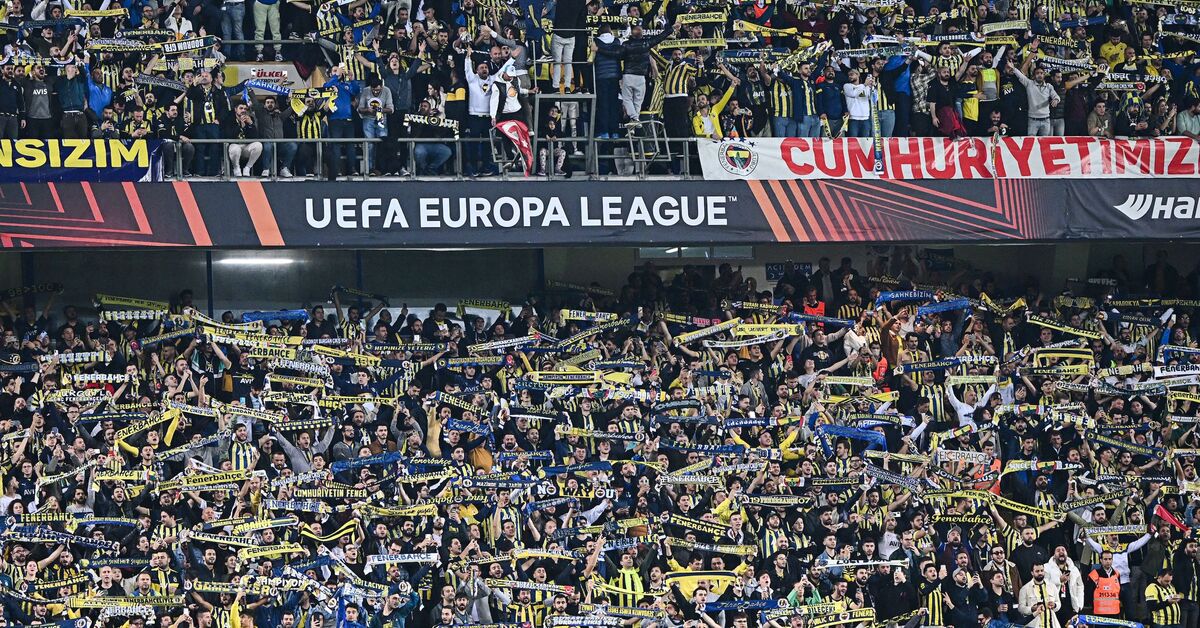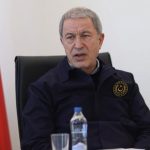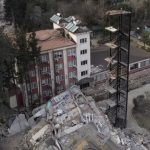The government’s response to the Feb. 6 earthquake disaster in Turkey has sparked growing protests on the streets, in soccer stadiums and online — and a corresponding crackdown on free speech.
Three weeks on from the catastrophe, which left around 52,000 dead in Turkey and Syria, further details of negligence are emerging, stoking angry questions among the public.
Outspoken criticism of government failure, which even President Recep Tayyip Erdogan has acknowledged, has led to hundreds of people being detained.
A demonstration in Istanbul’s Kadikoy district on Sunday saw more than 100 arrests, according to organizers from the Turkey Workers Party (TIP).
The protest was held to condemn the sale of more than 2,000 tents by the Turkish Red Crescent, known as Kizilay, to a private charity three days after the earthquake rather than distributing them to victims. While it is part of the International Red Cross and Red Crescent Movement, Kizilay is also closely linked to the government.
Police sealed off the streets surrounding the TIP office in Kadikoy even as volunteers were loading a truck with supplies to be sent to the earthquake zone, according to a TIP official. “We just tried to load a truck even when our party was under blockade. Half an hour ago our truck left incomplete because our comrades were detained,” said the party’s Istanbul spokesperson Melis Akyurek.
Over the weekend, as a pause on sporting events in the aftermath of the quakes ended, outrage at the shoddy response to the disaster bubbled over at soccer grounds.
Fans of Fenerbahce and Besiktas, two of the country’s most popular clubs, chanted for the government to resign. Although TV broadcaster beIN Sports muted the noise from the crowd during the protest, video footage was widely shared across social media.
Fenerbahçe tribünleri: “Yalan yalan yalan, dolan dolan dolan, 20 sene oldu istifa ulan!” pic.twitter.com/MobYtlIoV4
— Turkish Ultras (@UltrasTurkish) February 25, 2023
At Fenerbahce’s Sukru Saracoglu stadium in Istanbul, the crowd maintained silence for the first four minutes and 17 seconds of the game to mark the time of the first quake, which struck at 4:17 a.m. After the solemn tribute to victims, the stands reverberated with chants accusing the government of lying and demanding its resignation.
Turkey’s soccer fans have a history of political involvement. During the 2013 Gezi protests, they were at the forefront of clashes with the police as nationwide demonstrations threatened Erdogan’s government.
In response to the chants, officials in Kayseri announced that Fenerbahce fans would be barred from attending their next fixture, an away game against Kayserispor in central Anatolia.
Erdogan’s ultranationalist ally Devlet Bahceli spoke out about the “despicable” stadium protests. “Calling for the government to resign, striving to produce political chaos in the stands is a conspiracy of internal and external links ordered by a handful of fanatical and hooligan groups,” he told a meeting of lawmakers from his Nationalist Movement Party on Tuesday.
Shortly therafter, the Turkish Football Federation called a meeting of clubs to discuss the option of barring fans from attending matches, sports newspaper Fotospor reported.
Online criticism of the earthquake response has also led to a clampdown. Some 145 people have been detained over social media posts, according to the national police’s cybercrime unit. Of them, 27 people are still in custody awaiting trial on the orders of prosecutors.
The police added that judicial proceedings had been opened against 581 social media account owners for spreading “fear and panic.”
The popular online forum Eksi Sozluk (“Sour Dictionary”) was blocked by the Information Technologies and Communication Authority on Feb. 21 following a court decision. In its ruling, the court said the website contained false information about “the state institutions and the military related to the earthquake,” adding, “There are posts aimed at deceiving society and trying to show the state in a helpless condition, creating an environment of turmoil between segments of society.”
Eksi Sozluk CEO Basak Purut described the order as censorship and said the authority had not given examples of such content during a meeting two days after the ban.
Broadcasters that do not toe the government line in their reporting on the earthquake response have also faced censure. Three TV stations were penalized last week over their earthquake coverage by the Radio and Television Supreme Council.
Ilhan Tasci, a member of the media regulator’s board nominated by the opposition Republican People’s Party, commented on what he considered overreach, saying that Halk TV, Tele 1 and FOX were fined a portion of their January turnover for “comments and news after the earthquake.” The three channels are known for being critical of the government. Halk TV and Tele 1 were also ordered to suspend one of their daily programs for five days.
“We live in a time when reporting is considered a crime,” Tasci added.
Source:Al-Monitor
***Show us some LOVE by sharing it!***



